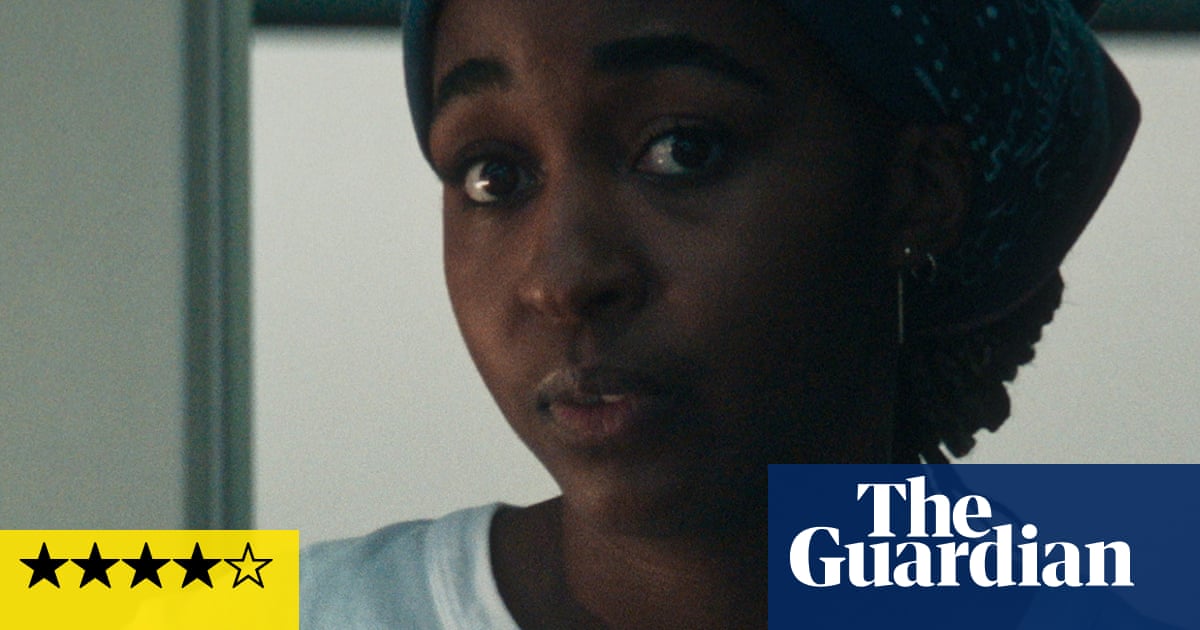Recalibrate your palate:The Bearis not the show it used to be. The relentless drama you were stunned by in season two – when you finished an episode and said it was the best show you had ever seen, then played the next one and said it again – is not coming back.
Season four starts with Uncle Jimmy (Oliver Platt), the family friend who has invested in the fledgling Chicago eaterie The Bear, installing a countdown clock that says the business has 1,440 hours to save itself. But much of the new run isn’t even about the restaurant. The show is outgrowing its premise, leaving behind “yes, chef!”, lingering closeups of seared beef and screaming matches in the pantry in favour of a different intensity, one that draws even more deeply on the characters and how they fit together. Indulge it – and you will have to indulge it, in a few ways – and you will find this experience just as rich.
The restaurant is reeling from negative press – the Chicago Tribune’s reviewer reports understatedly that they observed “dissonance” – but the show returns seeming almost arrogantly relaxed. The first two episodes potter, enjoying extended montages of folk cooking to the artfully curated sounds of the Who, Talk Talk, the Pretenders and, in a preparing-for-service sequence that goes on for longer than you think it would dare, a brilliantly deployed excerpt from Tangerine Dream’s soundtrack for the 1981 movie Thief.
Between courses, characters set out their self-improvement goals: Tina (Liza Colón-Zayas) wants to train herself to cook a pasta dish in under three minutes; Cousin Richie (Ebon Moss-Bachrach) wishes the little speeches he gives the waiting staff were more inspiring; Ebraheim (Edwin Lee Gibson) would like to help pull the numbers out of the red by becoming a commercial visionary.
Dealing with the big stuff as usual are the head chef, Carmy Berzatto (Jeremy Allen White), and his faithful, frustrated assistant, Sydney (Ayo Edebiri). He wants to “do better”: communicate more, apologise more, explain more, shout less. She continues to wonder if she should jump ship to take a job at a flash new startup. A whole episode, co-written by Edebiri and Lionel Boyce (who plays Marcus), is given over to Syd visiting her cousin’s house to have her hair done and discuss the dilemma with her cousin’s young daughter. It’s a lovely digression, but is it necessary?
Well, yes. It may not feel like it during this year’s slow start, just as it didn’t duringthat apparently directionless third season,but Christopher Storer, the showrunner, knows what he is doing. More than ever, this is a show about family – the traumas they inflict on each other and the power they have to soothe them – and how families extend to friends and colleagues who can be just as beloved and just as maddening. That Richie is not actually Carmy’s cousin and Uncle Jimmy is not anyone’s uncle has always been an endearing quirk of the setup, but now it becomes essential and endlessly moving. Where once The Bear made pulses pound, now it lets the happy tears flow; the second half of the season is like one long therapy session. Syd isn’t just deciding whether or not to take a job – she is deciding whether or not she is becoming a Berzatto.
Once again, the centrepiece is a double-length episode dedicated to a family get-together. The whole gang is there, so that unbelievable extended cast – including Sarah Paulson,Bob OdenkirkandJohn Mulaney, plus new additions Josh Hartnett and a hilarious Brie Larson – is reunited, this time for the wedding of Richie’s ex-wife, Tiff (Gillian Jacobs).
With the unstable Berzatto matriarch, Donna (Jamie Lee Curtis), in attendance, passive-aggressively transferring her anxieties to whoever she is speaking to, the potential is there for another psychodrama along the lines of that sublime but gruelling Christmas flashback from a couple of seasons ago. But having put his creations and his audience through hell, Storer now lets the light in via a torrent of tenderly written, fiercely performed interactions where broken people who love each other start to heal, saying variations on those two beautiful phrases, “sorry” and “thank you”.
Payoffs big and small ping in every scene as narrative seeds carefully sown – including in that bad third season! – burst into bloom and these people we have come to adore are rewarded. Not that it’s ever easy: if the wedding episode is a classic, so is the painfully fraught, stunningly acted finale, where we don’t know whether the most troubled of our cousins will find the courage to open up. Storer has shown a lot of courage in giving them the chance. This new Bear is doing much better.
The Bear is on Disney+ in the UK and Australia and on Hulu in the US
